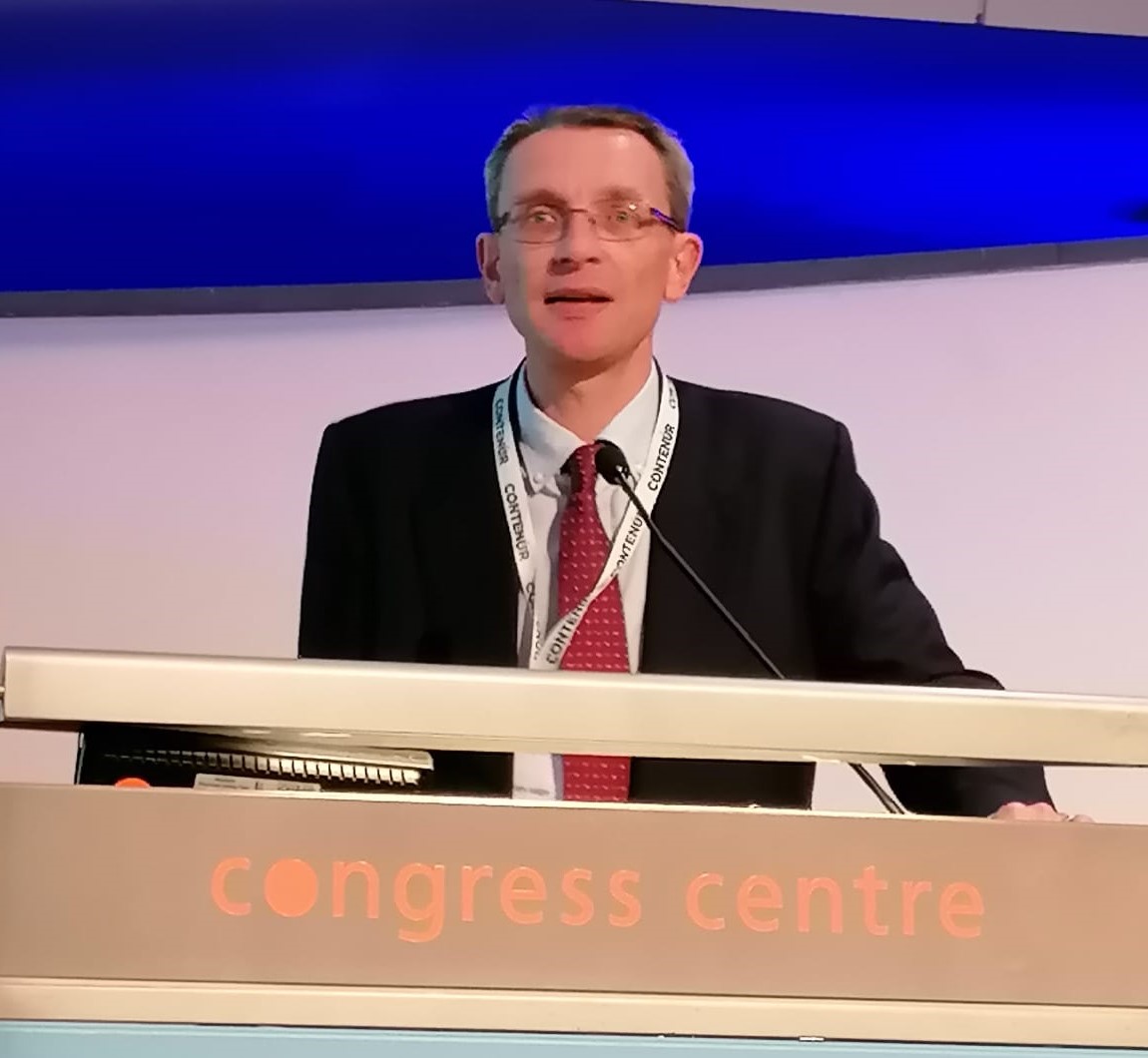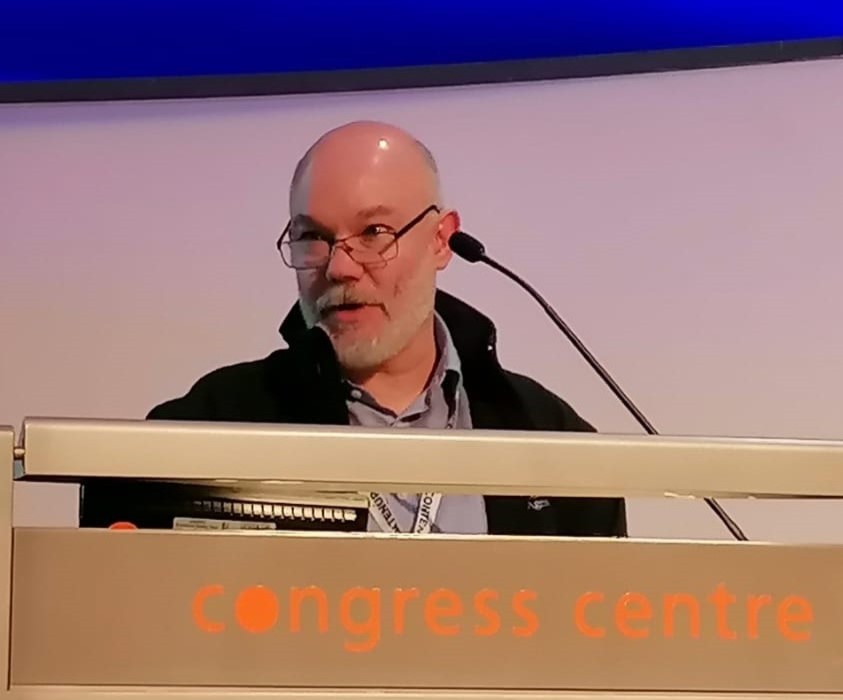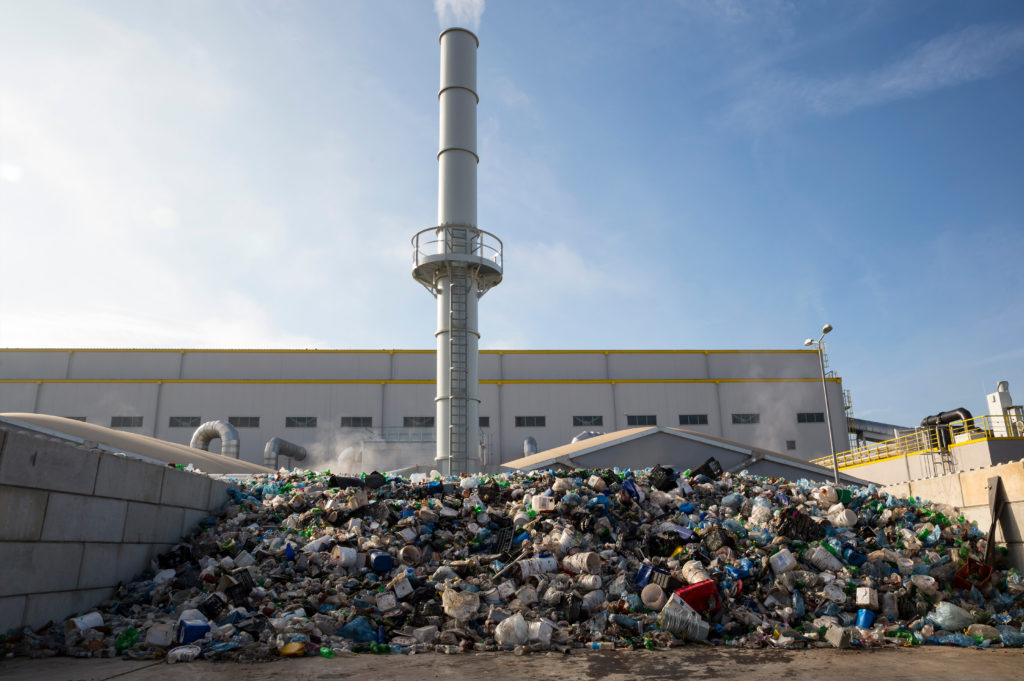Adrian Judge, director of Tolvik Consulting, made the estimate of the likely costs during a talk at the RDF Conference at the Congress Centre in London yesterday (24 November).
While he said this could present opportunities for some RDF exporters, there is a “high likelihood” some costs could end up with local authorities, too.
The UK emissions trading scheme went live on 1 January 2021, replacing the European Union’s scheme. However, it remains in its early stages with various deadlines. It currently includes energy from waste (EfW) in its scope, which Mr Judge said could end up being very costly.
Mr Judge estimated there would be a charge of around £80 a tonne of carbon emitted, but the costs could rise to more than £400 based on the highest estimates. He said processing a tonne of residual waste at an EfW plant produces around 992kg of carbon.
But, the tax could be calculated on the fossil-derived element of the waste, and mainly plastics, meaning EfW plant operators would only pay for half of the 992kg.
‘Pressure’
Mr Judge said: “The government will be under pressure to ensure that EfW plants are included, given they rank highly in terms of emissions.

“If only the carbon-derived element is calculated, then the costs will be around 48% of total carbon. However, this is open to interpretation, as in the Netherlands and Germany this is set at 34% and 28% respectively.
“It is estimated that an £80 per tonne tax on EfW under the scheme would lead to costs of around £800 million a year.
“However, there is a risk this could rise to around £200 a tonne or even more, in which case the costs would be substantial. The UK EfW market is worth around £1.3 billion based on gate fees, so an £800 million or more cost would be very noticeable.”
He added that plants could begin to offset their emissions by introducing heat networks, plastic reduction initiatives and carbon capture. Plant operators can also explore forward carbon trading, though Mr Judge warned this was “complex”.
Costs
Mr Judge then moved on to how the costs would be passed along the supply chain. He said many EfW plant operators have long and complex supply chains which include local authorities, commercial customers and haulage contractors.
“People need to be aware that the regulators would require this cost to be paid straight away” he said. “Recovering funds in a timely fashion is difficult. Some of the costs will inevitably end up being passed down, and spot prices will rise too to counteract this.
“These changes will need to be thought through carefully, sometimes costs can’t be passed on.”
In terms of opportunities, he said the European scheme was rolling out in phases across member states, with each having a different system. Exporters could therefore capitalise on opportunities to find cheaper disposal routes where European countries have not introduced such a scheme.
If EfW operators are hit with higher bills, RDF exports could also become a better value disposal route than sending unsorted waste to EfW, Mr Judge suggested.
Mr Judge also spoke about the risk of “leakage” from the system, where the cost of EfW rises to the point that it is cheaper to dispose of it elsewhere down the hierarchy. He said the department for business, energy and industrial strategy had made the case for a “level playing field” with exports, while landfill taxes could also rise too.
Regulator
Mr Judge took to the stage after Steven Molyneux, deputy director of waste regulation at the Environment Agency.

Mr Molyneux provided an overview of the Agency’s regulatory work and how the 1.6 million tonnes of RDF exported last year were regulated.
Mr Molyneux said the Agency stopped 20,000 tonnes of illegal shipments being exported, with around 20% of the 1,390 containers inspected containing illegal material.
Commission
Ending the discussion was Yorg Aerts, policy officer at the European Commission DG environment. He outlined the Commission’s work on revisions to waste shipment regulations.
The proposed regulation aims to ease shipments of waste for reuse and recycling in the EU and support the transition to a circular economy.
The Commission hopes to ensure that waste exported from the EU is managed in an environmentally sound manner in the destination countries and to step up enforcement to counteract illegal shipments of waste.
Mr Aerts said exports outside non-OECD countries would be allowed in some cases and the Commission has a particular focus on the export of textiles ‘”under the guise of recycling”.










Subscribe for free